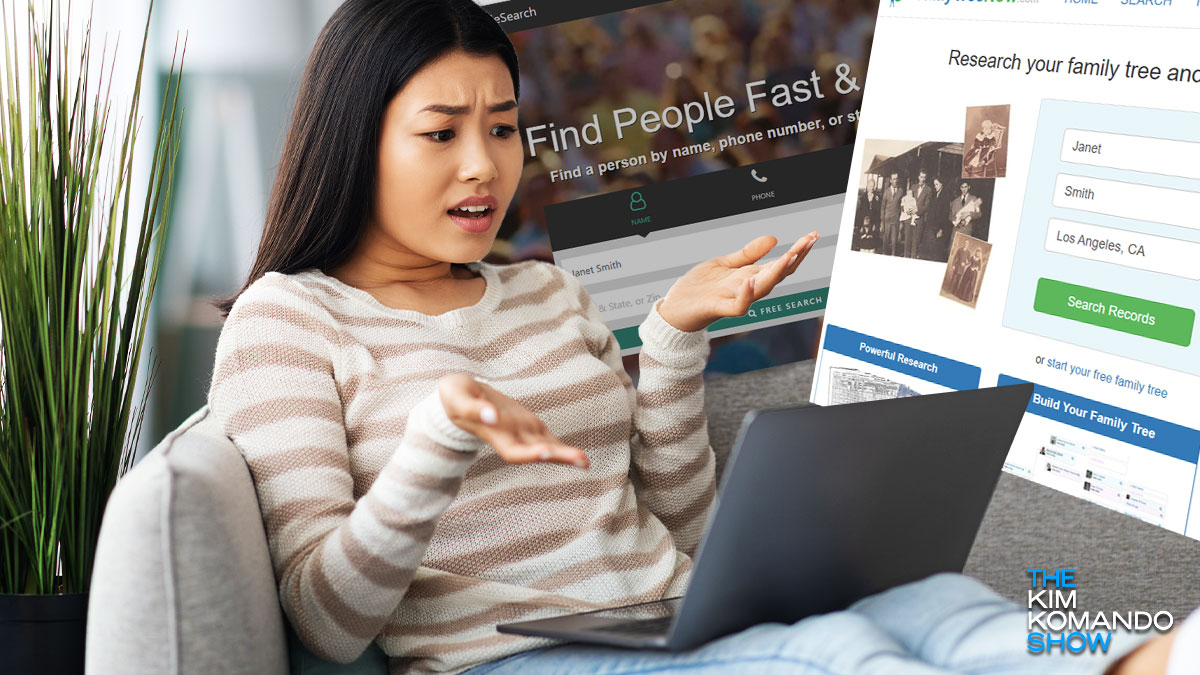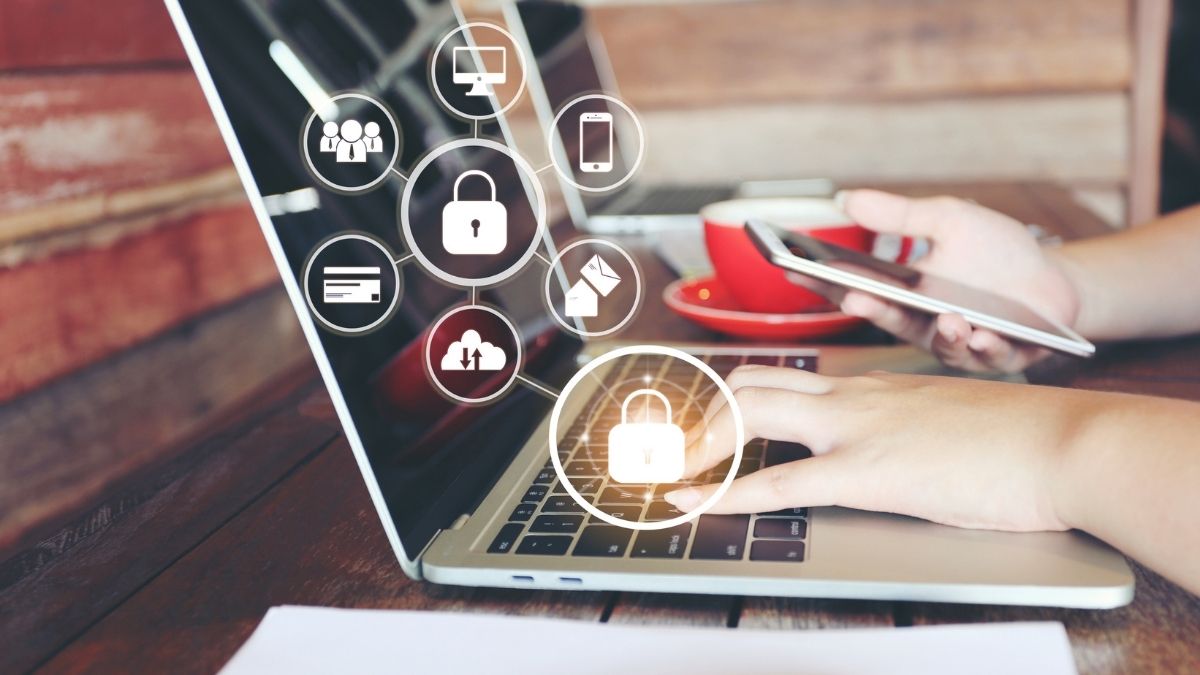Curious about what’s in it for you? In this one-minute podcast, I’ll reveal the intriguing offer.
How to see everything Amazon knows about you
Tech giants don’t become enormous by guessing what users want or need. Behind the scenes is a complex operation of algorithms, customer information and personal data. That information must be gathered from somewhere.
Read on for steps to see everything Amazon knows about you.
Amazon’s treasure trove of information
Like social media networks, online retailers require information to work correctly. For example, they must know your location for home deliveries, your mobile number for notifications and things you are interested in to provide targeted ads.
According to Amazon’s privacy policy, the data it collects on you comes from three sources: what you willingly provide, information gathered automatically, and from other sources, such as third-party providers.
In addition to your name, address and telephone number, the information you provide includes anything you add or remove from your cart, your interactions with Alexa and any contacts you upload to your profile.
Automatic information collection includes things like your computer or mobile phone’s IP address, the location of your device and your purchase and content history. It also includes downloads, streams and playback details.
Information gathered from other sources includes updated delivery and address information, search results and links, credit history information from credit bureaus, and information about internet-connected devices and services linked with Alexa.
Steps to see everything Amazon knows about you
You control the information you provide to Amazon, but as with many services, it might not give you the best experience if you withhold critical details. However, some information seems irrelevant and its collection doesn’t always make sense.
Is there anything that you can do about it? Well, to some degree, yes. Amazon is relatively transparent with what information it gathers on you to create a user profile, and you can easily see the data.
According to its privacy policy, you can access your information, including your name, address, payment options, profile information, Prime membership, household settings, and purchase history, in the Your Account section of the website. But you can find out even more data with the following steps.
We may receive a commission when you buy through our links, but our reporting and recommendations are always independent and objective.
Ignore this Facebook scam trying to get you to buy a 'cheap phone'

When an offer seems too good to be true, it most likely is. A Facebook scam making the rounds is capitalizing on people looking for a cheap phone upgrade. We’re not talking about generic burner phones, either.
Read on for details and to learn how to protect yourself.
This California startup will pay you for your personal data
Someone left a creepy message in this woman's Netflix - Check your account

Sure, your brother and mom are using your Netflix account. Who else could be stealing your service or personal data from the app?
The following is a modern-day horror story. It speaks to one fear many ordinary people have about their online accounts. Strangers getting their dirty little fingers into their streaming services, browsing history or email inboxes.
Opt-Out Tuesday: How to remove your info from PeopleSmart

When was the last time you searched for yourself online? There’s likely plenty of accurate information about you floating around the web that you didn’t know about, such as your full name, address, phone number, family history, employment information and more.
How to track your mail-in ballot
Most people in the U.S. can vote by mail now. The convenience factor is undeniable. It’s beneficial to those who are elderly or otherwise homebound. Do you vote by mail? Tap or click here for steps to change your address if you move.
Security tip: How to stop websites from tracking you with URLs
Never underestimate the creativity of online advertisers. Now that many browsers block third-party cookies, advertisers use URLs to track you from site to site. In the name of privacy, it’s time to stop URL-tracking links.
30-second privacy check every Google and Facebook user must do today

So much about you is collected, compiled, and sold to the highest bidder. Shady people finder and data broker sites make it their business to know as much about you as possible. Tap or click here for three sites you should check for your info and steps to remove it.
This email says your Google account will be marked inactive - Is it real?

Depending on what you use it for, being locked out of an account can range from a minor inconvenience to a nightmare. The first thing you need to do is relax and avoid making things worse.
There’s no bottom to a scammer’s bag of tricks. If you find yourself locked out of your social media account, don’t reach out to strangers promising to help you get back in. While there are legitimate services, you are taking a chance on giving your information to thieves. Tap or click here for tips on how to handle it.
Hide your browsing history from your ISP so they don't sell your info

Do you ever wonder how much information your ISP gathers from your browsing habits? Worse yet, how much of it could be sold to advertisers?
These are the tough things we have to deal with in today’s always-connected world. The sad thing is that there is no legislation to protect how ISPs can use your intercepted personal data as it passes through the systems.
30-second privacy check: See what companies you’re unknowingly sharing personal data with

Big Tech companies look at you and see much more than a simple person — they see a buffet of data. Every bit of your life can be collected, compiled in a digital folder and sold off to the highest bidder. If you aren’t sure which companies know the most about you, use this guide to find out who has your data.
Update Google Chrome ASAP - 3.2 billion users at risk

Google rarely releases an update with a single change, but you know the flaw must be monumental when it does. Google recently discovered a significant security risk in Google Chrome that hackers are already exploiting. Luckily, it patched the problem, so you need to update Google Chrome ASAP.
3 ways to fight SIM-swapping - Follow this cybersecurity checklist to protect yourself

Every cybersecurity threat has the potential to snowball into an avalanche of issues — but some are more dangerous from the jump. Experts say you should watch out for impending cyberattacks, thanks to the Russia-Ukraine war. SIM swapping is an especially dire threat since it takes over your smartphone, rendering it useless.
SIM swapping is one of the most dangerous phone hacks - And it's on the rise

You might assume that the SIM card in your mobile phone is safe. After all, it is firmly embedded into your device, and someone would need to take it out physically to access it. But that isn’t the only method. Tap or click here for an in-depth look at SIM swapping scams.
Is your salary posted online for anyone to see? Check this creepy site now

Sometimes, trying to protect your information is like playing Whack-a-Mole. Say one day you find out that some invasive site posted your full name, address and date of birth online. Tap or click here to stop strangers from learning where you live — and tracking you down on Google Maps.
3 websites that gather and sell your info - And how to delete it

You’ve got a few hundred secret admirers. These figures hide in the shadows, watching over you, writing down as much as they can, becoming as much of an expert on you as possible. Then they turn around, sell what they find, and make a killing.
Ever used TikTok? File a claim for your part of a $92M class-action settlement

There is no doubt that the video-sharing app TikTok has exploded in popularity recently. During the height of the pandemic, the app ranked as the third fastest-growing brand — only trailing Zoom and Peacock. Tap or click here for smart digital life hacks you won’t find on TikTok.
Security tip: How to set up a VPN on all your devices

If you’re security and privacy-conscious, you need to take all the steps you can to keep yourself safe online. That starts with the right VPN.
Not using a VPN is like leaving your front door unlocked every time you go out. Sure, nothing might happen for years, but when something does happen, it’s devastating.
Pop quiz: Between Alexa, Siri, Cortana and the rest, what collects the most data?

We accept that a degree of personal data needs to be collected by smart assistants to work properly. This is a big part of how they operate, and without it, personalized results, directions or things like local weather would not result in useful information.
Got a warning you need to update your phone? It might be malware

There are plenty of ways hackers try to steal your banking information and personal data. Spam or phishing emails are incredibly effective, and so are personalized malicious text messages.
Hackers have also been found to create fake apps that look strikingly like the real thing. Once you install it, your mobile phone will be infected with malware. But taking that one step further, a group of hackers is now trying to convince you that your phone is already infected.
